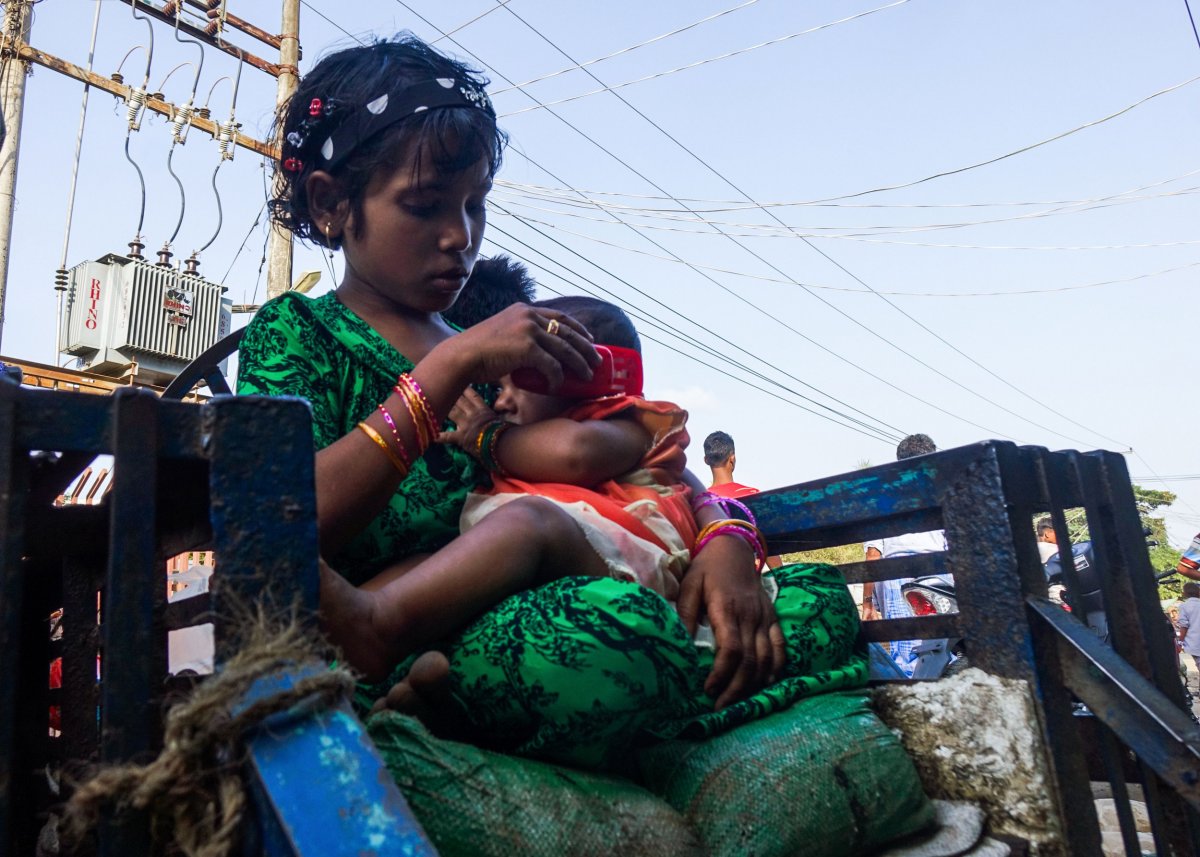The Rohingya, who have been the victims of what many have called genocide at the hands of Myanmar's military, are being forgotten in the pro-democracy protests sweeping the country. We should not seek to simply turn the clock back to January 31, before the military coup. We must turn the clock back to early 2015, before the ethnic cleansing of the Rohingya began.
In the rivalry between the generals on the one hand and civilian National League for Democracy (NLD) Party leaders like Aung San Suu Kyi on the other, both sides seem comfortable with the crimes committed against the Rohingya Muslim minority.
If Suu Kyi's supporters really want democracy, they should demand a true democracy for all citizens of Myanmar—not a Buddhist-supremacist state where citizens are forced to live as refugees. The essence of a properly functioning democracy is not the law of the majority, but the protection of the minority.
While Suu Kyi is clearly perceived as a better option than the military, she has nevertheless been an enabler of the military's policies in recent years.
Suu Kyi spent more than 15 years under house arrest. She was awarded the Nobel Peace Prize in 1991. International human rights groups in the past rallied in support of her and are now supportive of the protests her backers launched.
Suu Kyi repeatedly downplayed the Rohingya situation, on multiple occasions saying that there was fear "on both sides" drawing a false equivalence between the army's squads and unarmed Rohingya villagers. She also helped in the regime's denials, claiming that because "50% of the Muslim towns remain intact" there was no wrongdoing.
It would not be a sustainable solution if the military were replaced by a civilian "democratic" movement led by Suu Kyi which continues ethnic cleansing against their citizens. For sustainable democracy, she must evoke the same spirit as former U.S. President Franklin D. Roosevelt who said "no democracy can long survive which does not accept as fundamental to its very existence the recognition of the rights of the minorities."
Perhaps it is impossible, even for those fearless protesters, to imagine a Myanmar without mistreatment of the Rohingya—the recent wave of which goes back to the country's 1991 Operation Clean and Beautiful Nation.
I hope that now those protesters have seen some of the brutality of the regime first hand, they will sympathize with those who have suffered more harshly, and for longer, namely the Rohingya.
Despite her checkered past, even many Rohingya themselves expressed support for Suu Kyi, as an alternative to military rule. Let us hope that they will not be facilitating a friendly civilian face to the same brutality.

It would be wrong to define the aggression against the Rohingya as purely a military act by the army; civil society, including Buddhist monks, is a key part of it.
Tensions between the Burmese Buddhist population and the Rohingya people date back to World War II. The Rohingya Muslims were supportive of the British colonialists, while the Buddhists sided with the Japanese invaders.
Since this historic political disagreement, the Rohingya have been repeatedly forced out of the country, with the ruling elites claiming they are "illegal immigrants from Bangladesh." It is Bangladesh which has hosted over a million displaced Rohingya as a result of Myanmar's mistreatment.
What Myanmar needs is a leader who can address the ghosts of the past and create an equitable future, with a democracy representing all ethnic groups who are native to the country, not just the ones listed in Myanmar's 1982 Citizenship Law.
Suu Kyi and other civilian leaders, from the NLD party and the grassroots movement, should be encouraged to admit their complicity or ignorance of past events and take this spirit of honesty and reconciliation across Burmese society.
Myanmar needs more than a shuffling of chairs in the corridors of power—it needs a full-blown truth and reconciliation movement like post-apartheid South Africa. Democracy cannot be achieved without addressing historical racial injustices, just as South Africa did in the 1995 Truth and Reconciliation Commission.
The international community must be prepared to stand with the wishes of all the people of Myanmar and stand against all human rights abuses in the country—not just those that the opposition leader chooses to recognize.
Only then will the country be able to proceed with the return and enfranchisement of the estimated 1 million Rohingya people who have been displaced—and who are in receipt of a repatriation agreement that theoretically allows them to return home, while not doing anything practical to ensure their safety.
It seems that many protesters in the country are living through the final line of Martin Niemoller's poem "First They Came": "Then they came for me and there was no one left to speak out for me." Will they speak out for the Rohingya?
Ashfaq Zaman is a humanitarian and entrepreneur. He is the co-founder of CNI News.
The views expressed in this article are the writer's own.
Uncommon Knowledge
Newsweek is committed to challenging conventional wisdom and finding connections in the search for common ground.
Newsweek is committed to challenging conventional wisdom and finding connections in the search for common ground.
About the writer
To read how Newsweek uses AI as a newsroom tool, Click here.








